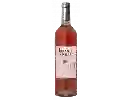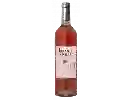
Winery Rives & TerrassesCostières de Nîmes Rosé
This wine generally goes well with
Details and technical informations about Winery Rives & Terrasses's Costières de Nîmes Rosé.
Discover the grape variety: Gros vert
Gros vert blanc is a grape variety that originated in France (Provence). It produces a variety of grape used to make wine. However, it can also be found eating on our tables! The Gros vert blanc can be found cultivated in these vineyards: South-West, Cognac, Bordeaux, Rhône valley, Provence & Corsica.
Last vintages of this wine
The best vintages of Costières de Nîmes Rosé from Winery Rives & Terrasses are 2017, 2014, 2016, 2015 and 2012.
Informations about the Winery Rives & Terrasses
The Winery Rives & Terrasses is one of of the world's great estates. It offers 23 wines for sale in the of Costières-de-Nîmes to come and discover on site or to buy online.
The wine region of Costières-de-Nîmes
The wine region of Costières-de-Nîmes is located in the region of Rhône méridional of Rhone Valley of France. Wineries and vineyards like the Domaine Scamandre or the Château d'Or et de Gueules produce mainly wines red, pink and white. The most planted grape varieties in the region of Costières-de-Nîmes are Mourvèdre, Roussanne and Viognier, they are then used in wines in blends or as a single variety. On the nose of Costières-de-Nîmes often reveals types of flavors of non oak, thyme or raisin and sometimes also flavors of clove, cocoa or coffee.
The wine region of Rhone Valley
The Rhone Valley is a key wine-producing region in Southeastern France. It follows the North-south course of the Rhône for nearly 240 km, from Lyon to the Rhône delta (Bouches-du-Rhône), near the Mediterranean coast. The Length of the valley means that Rhône wines are the product of a wide variety of soil types and mesoclimates. The viticultural areas of the region cover such a distance that there is a widely accepted division between its northern and southern parts.
The word of the wine: Cupbearer
Person in charge of choosing and serving wines. Old term for the sommelier.














